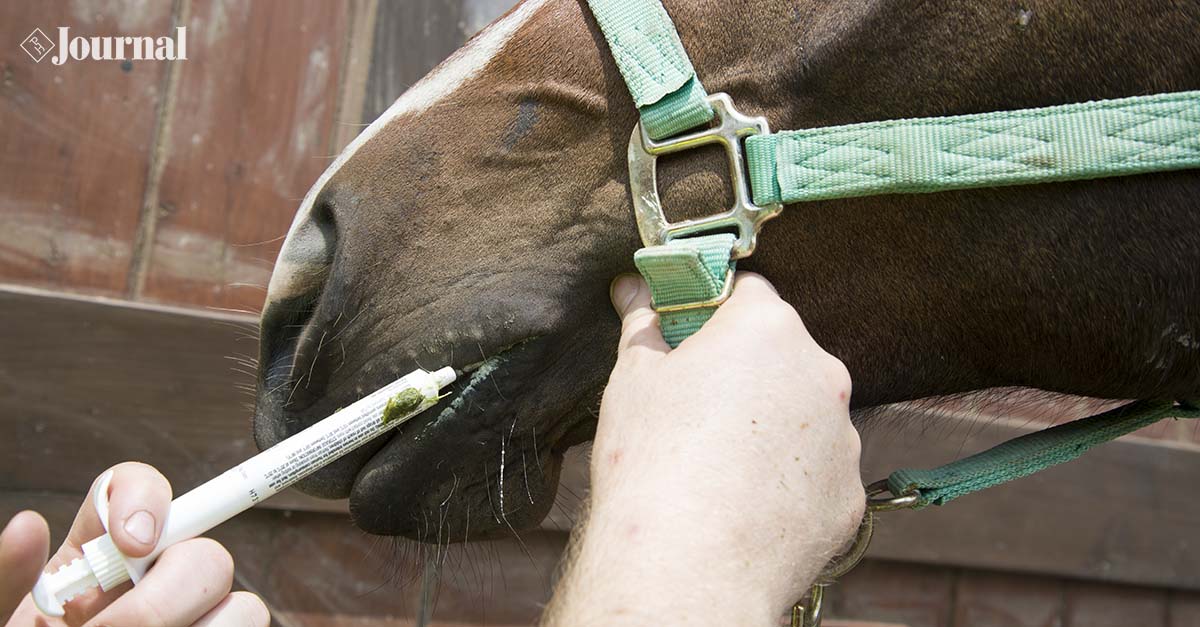By Mary Grace Schmid, sourced from the July/August 2019 Paint Horse Journal article “Deworming Detailed” by Alana Harrison
Deworming can often be a daunting task for horse owners. With so many different products and technicalities, it can be frustrating to try to figure out alone. In the July/August 2019 Paint Horse Journal, Martin Nielsen, D.V.M., Ph.D., of the Gluck Equine Research Center at the University of Kentucky and Lydia Gray, D.V.M., M.A., the medical director at SmartPak, shared their expertise on designing an optimal equine deworming program.
Daily deworming is a popular alternative to more conventional paste dewormers, administered orally throughout the year—ideally, after a fecal egg count indicates a need for deworming in your horses. Lydia shares her insight on how to properly administer daily dewormers, if necessary.
“If the daily dewomer no longer works on your horses—meaning a high level of resistance—then it won’t be effective,” Lydia said. “You need to perform fecal egg counts and work with your vet to determine whether daily dewormer is a viable option for your horses’ situation.”
Daily deworming is only available in the pyrantel class of medication and consists of daily administration of pyrantel tartrate that’s given to horses every day for the length of the grazing season. Daily dewormers, however, should only be used in in certain circumstances for a specific period of time and are never recommended for long-term use.
Martin notes that daily dewormers are only available in North America and says there isn’t compelling biological rationale for deworming horses every day.
“If we try too hard to eliminate all parasites, they’re going to develop more resistance to this class of dewormer,” he said. “But in all fairness, we have seen resistance to this same class of dewormer in paste form in other parts of the world, so we can’t claim that the daily dewormer necessarily made resistance worse in the U.S. compared to Europe, for example.”
To learn more about equine parasite control and new deworming strategies, read “Deworming Detailed” in the July/August 2019 Paint Horse Journal. Subscribe today!





